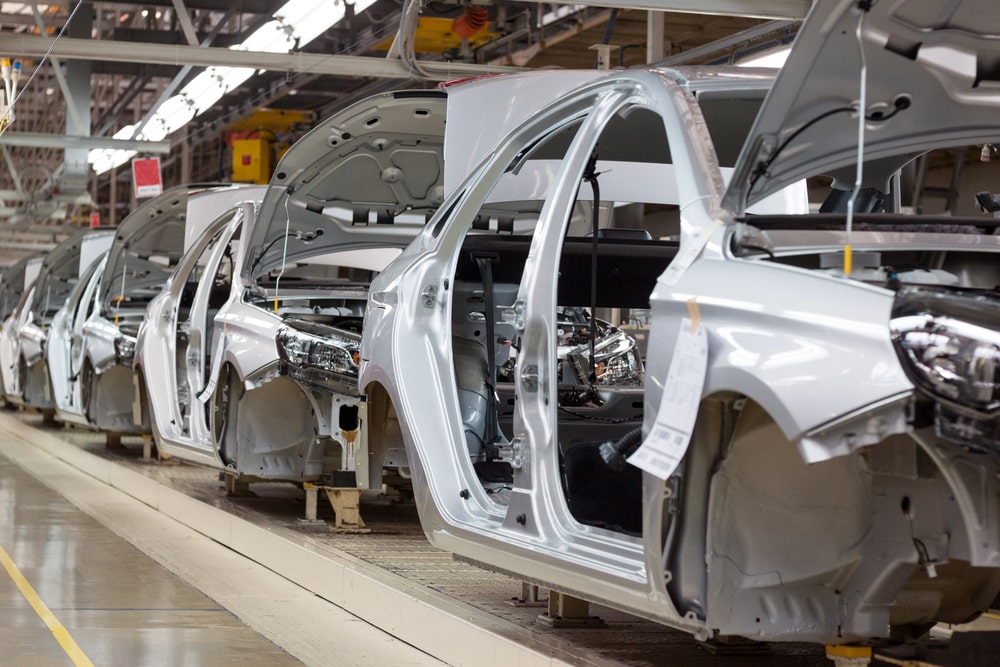Has the U.S. car market crashed?
Justin S
Created by: Oct 01, 2025
|
Modified by: Nov 07, 2025

Right now, there’s a buzz of uncertainty in the air when it comes to the U.S. car market. With a weakening economy, many are talking about an impending crash. While the future is nearly impossible to accurately predict, there are signs that the economy might be slowing down, which could affect everything from car prices and inventory to how cars are bought and sold. It’s a time of anxiety for the auto industry, but it may also offer some potential opportunities for buyers. Let’s break it down.
Economic Indicators Pointing Toward a Slowdown
There are several indicators that the economy might be cooling off. Job growth has been tapering, with some sectors seeing slower hiring. Consumer confidence is also waning; people are feeling less secure about their financial futures, which means they might be less willing to spend big on a car. Additionally, the housing market has been cooling, which often goes hand-in-hand with car sales. When people aren’t buying homes, they might delay buying new cars too. These signs suggest that demand for cars could decrease, which could lead to a market slowdown.
Tariffs and Their Role in the Market
While the auto industry as a whole has been going through some transformation, with electrification and clear air mandates, one of the main factors impacting the industry today is tariffs. Tariffs have been a big factor in the car market’s recent volatility. Higher tariffs on imported cars and car parts can increase costs for manufacturers, which might mean smaller profit margins for dealerships and car companies as well as higher prices for consumers. The market is becoming highly volatile and as global trade tensions change, so does the entire automotive landscape. The rapid changes in legislation and political instability are said to have long-lasting effects on all industries within the states.
However, even with tariffs, the overall economic slowdown could push manufacturers to lower prices or offer more incentives to move inventory at a loss. Tariffs might have made cars more expensive in the past, but now, with the economy slowing, they could actually work in buyers’ favor by creating more room for discounts. However, the impact it will have on dealers, auto shops and manufacturers may be significant. As of now Stellantis has halted production of the Jeep Grand Cherokee and Wrangler as the inventory exceeds the demand. Other manufacturers are also struggling with diminishing sales and inventory that is not selling. Just like Stellantis, many of the car manufacturers have already begun implementing drastic cost-cutting measures such as halting production, downsizing and moving production. These changes affect everyone from people working on the assembly plants to local mechanic shops and dealers.
The Silver Lining: A Buyers’ Market Emerges
Here’s where things get interesting. With the potential for a market crash, dealerships might lower prices to attract buyers just to move inventory. Their primary goal may not be just to make a profit but to get the car off the books. It is key to remember the longer a car sits on the dealer’s lot, the more it costs the dealer. Every day the dealer must allocate resources to keep that car clean, move it, market it and in many cases pay the bank interest on the money used to buy it. It is not in the dealership’s best interest to have a car sit around for an indefinite amount of time; this is why oftentimes they will discount it just to free up some resources.
As far as the manufacturers, they have been building up inventory, and with slower sales expected, they might be more willing to offer additional incentives and deals to help the cars sell faster. While heavy discounts, rebates, and financing deals are likely to hurt the industry and the people it employs, this could mean lower prices and better deals for buyers. It’s becoming a buyers’ market, with more inventory available than usual. For someone looking to buy a car, this could be a great time—cars might be cheaper, and there could be more options to choose from.
By staying informed about economic indicators and tariffs and by timing your purchase right, you could end up with a great deal. Whether you’re buying new or used, this period could offer lower prices and more choices. It’s a time to do your research, shop around, and take advantage of the good inventory and lower prices. While there’s uncertainty, there’s also a chance to find a car that fits your budget and needs better than ever before.
Conclusion
The car market is directly tied to the economy and is affected by new legislation and restrictions posed by the new administration, making the car market’s future uncertain. There are clear signs that a slowdown might be coming. While this could adversely affect many Americans employed by the automotive businesses, it also may be a chance for buyers to find better deals. By understanding the economic indicators and by taking advantage of the buyers’ market with lower prices and good inventory, you can navigate this period successfully.





